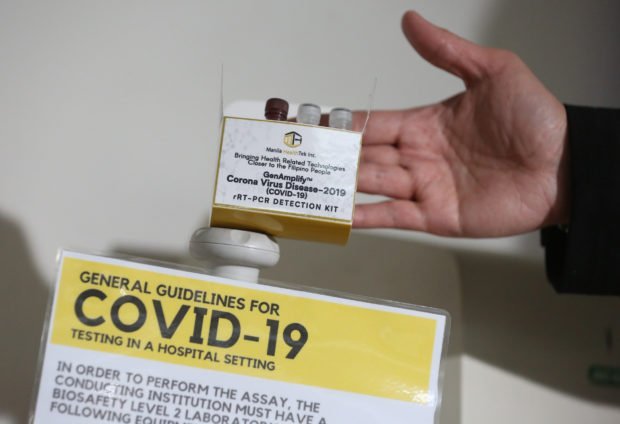The COVID-19 test kits have proven to be one of the best weapons against the virus. While their purpose is primarily meant for checking whether or not a person has the virus, the test kits themselves are an indicator of a community’s survival during the pandemic.
In Italy, they administer around 826 tests per million of people and the country’s mortality rate has already reached more than a thousand. While in South Korea, the testing has been high with 3,692 tests per million and only 66 deaths have been recorded ever since the rise of the outbreak. This shows that the amount of testing has a certain effect on a country’s efforts against the virus.
The mere knowledge of knowing whether one has the virus or not is already a vital step in flattening the curve of the virus. The more people are tested, the more they can take the necessary measures in healing from it, and in turn, hindering the virus from spreading. On the other hand, a lack of test kits may mean that some people can be left untreated, with the virus attacking more inside their bodies and enhancing its ability to contaminate others.
Ideally, each person should be tested for the virus because one can be asymptomatic. This means that they are not showing any symptoms, not even fever or any sign of weakness. Any person, ill or not, can be a carrier and can spread the virus if they are not tested and quarantined.
Test kit probabilities
The coronavirus test kits are based on a testing method called the polymerase chain reaction (PCR). To create these, the scientists take snippets of the virus’ gene and utilize it with chemicals to find that gene in the blood sample of a person. If there is a match, then the patient has the virus. The testing is highly reliable, but it takes a slow process to create these kits in laboratories. So, in times of a fast-acting pandemic like this, many forces and investments are needed for a rapid production.
The United States, Germany, South Korea and other countries have all done the necessary efforts in providing their citizens with all available test kits needed. In the Philippines, we are in the process of developing and administering a cheaper test kit created by scientists from University of the Philippines led by deputy executive director of the Philippine Genome Center, Dr. Raul Destura. The kit they created will only cost P1,320 per test, while foreign-made kits can price up to P8,500 per test.

It was indeed a stroke of genius that they were able to create these tests as the Department of Science and Technology has been underfunded for the last five years with constant decreases in their budget—with only P20.18 billion this year and the previous four years ranging from an P18 billion to P20 billion budget.
For science and technology
The coronavirus can also be considered another call to the government to prioritize funding for science and technology, especially as it stands as one of the frontliners in the fight against pandemics like these. More thought and budget should be given to branches of the government that are dedicated to aiding the safety of its citizens from natural threats in order for them to provide and enhance the technologies needed to prevent disaster.
The coronavirus can also be considered another call to the government to prioritize funding for science and technology.
Fortunately, the Philippines has been receiving the much needed aid from other countries. Two thousand test kits from China and 500 from South Korea were delivered last week, and DOH Secretary Francis Duque reports that around 5,000 to 10,000 more units will be delivered from China. Affected by the pandemic, big corporations and foundations have finally decided to help the masses and give them the support they have been needing. The SM Group, Jack Ma Foundation and Pacquiao Foundation are also donating test kits.
However, Manila is not the only place in the Philippine affected by the virus. There have already been cases in the Visayas and Mindanao regions and farther provinces in Luzon. The accessibility for testing kits is not as available in far-flung areas, and they are experiencing a lack of food and supplies since people started panic buying. More efforts are needed by the national and local government to make sure that each citizen from every province of the Philippines is accounted for.
A cry from a doctor in the province. She happens to be my daughter. She is also her own person, so much so that I learned about her post ten hours after. HOW CAN WE TEST OUR PEOPLE, she asks? Took screencaps because it's a long missive. pic.twitter.com/ZqGqEoOA6X
— inday espina varona (@indayevarona) March 17, 2020
A sense of camaraderie is indeed needed during these trying times. International ties must come into play and the right allocation of budget must be implemented. Creating the COVID-19 test kits and disseminating it to the public was the first vital step to recovery. For the cure, we will need the utmost clarity, communication and collaboration between the citizens, the government and the frontliners.
Header photo courtesy of Inquirer.net
Get more stories like this by subscribing to our weekly newsletter here.
Read more:
Duterte declares state of calamity throughout PH for 6 months as COVID-19 cases rise
Duterte places Luzon on “enhanced community quarantine”: Here’s what it really means
Your phone can carry coronavirus for 9 days. Here’s how to disinfect it